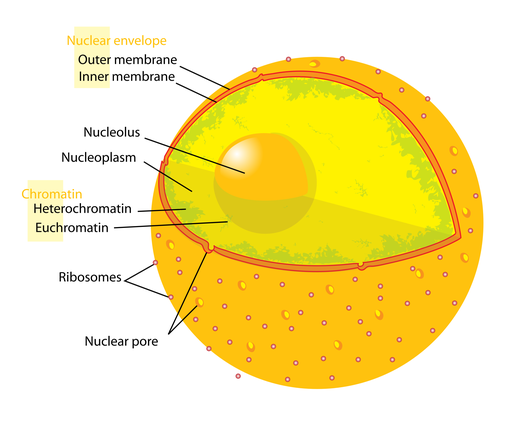The nucleus is an organelle that serves as the central hub of eukaryotic cells. The most important role of the nucleus is to house DNA for the purposes of RNA transcription; this DNA is duplicated, along with the rest of the nucleus, during mitosis.
Viewed under a light microscope, the nucleus often appears as a darker region because the nucleic acids contained within the nucleus are packed in so densely. For this reason, the nucleus was observed as early as 1719 by Antonie van Leeuwenhoek, a lens grinder who helped to vastly improve microscope technology.
Not every eukaryotic cell contains a nucleus. Perhaps the most often cited counterexample is mammalian red blood cells, which do not require complicated organelles due to their relatively simple purpose of carrying oxygen to the body's tissues. At the other end of the spectrum, some liver cells actually have two nuclei; however, for the most part, the one cell/one nucleus rule holds.
See the figure below for an illustrated cross-section of nuclear structure.
